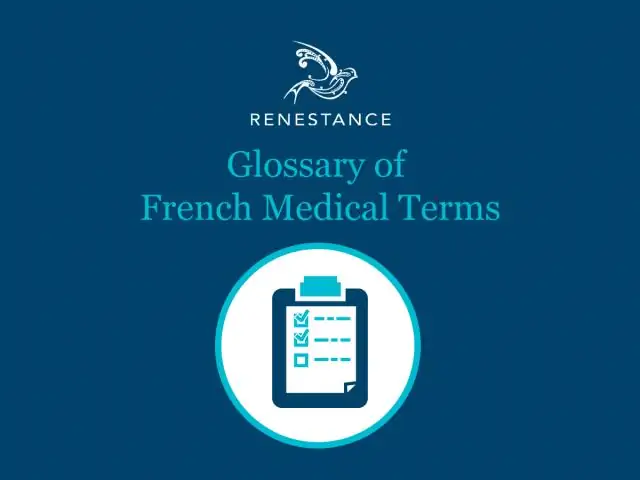- Author Rachel Wainwright wainwright@abchealthonline.com.
- Public 2023-12-15 07:39.
- Last modified 2025-11-02 20:14.
Apraxia
Apraxia (apraxia; a- - neg. Part + Greek praxis - action) - violation of purposeful action against the background of the safety of its constituent elementary movements; observed with focal lesions of the cerebral cortex or the pathways of the corpus callosum.
Types of apraxia:
- Akinetic (akinetica; synonym: psychomotor apraxia) - due to a lack of motivation to move;
- Amnestic (amnestica) - violations of voluntary actions against the background of the preservation of imitative;
- Bilateral (bilateralis) - bilateral apraxia; occurs in the presence of pathological foci in the inferior parietal lobe of the dominant cerebral hemisphere;
- Ideatorial (ideatoria; Greek idea - image, idea; synonyms: Marcuse apraxia, Bongeffer associative apraxia, Pica ideatorial apraxia) - impossibility to outline a plan of sequential actions that are necessary to perform complex motor acts;
- Ideokinetic (ideokinetica; Greek idea - image, idea + kinetikos - referring to movement) - is caused by the loss of the ability to purposefully perform simple actions that make up a complex motor act, while maintaining the possibility of their random execution;
- Kinesthetic (kinaesthetica; synonym: afferent apraxia) - caused by a violation of voluntary movements due to disorders of kinesthetic afferentation; characterized by the search for the right movements; occurs with lesions of the cortex of the postcentral region of the dominant cerebral hemisphere;
- Constructive (constructiva) - the inability to compose a whole object from its parts;
- Cortical (corticalis) - occurs with lesions of the cortex of the dominant hemisphere of the large brain;
- Frontal (frontalis) - violations of the programming of complex sequential motor acts; occurs with lesions of the prefrontal cortex of the cerebral hemispheres;
- Motor (motoria) - the impossibility of a complex motor act while maintaining the ability to outline a plan of the sequence of actions necessary for its implementation;
- Dressing - difficulty dressing; observed with lesions of the parieto-occipital region of the cerebral cortex;
- Oral (oralis) - motor apraxia of the facial muscles with disorders of complex movements of the tongue and lips; leads to speech disorders;
- Premotor (praemotoria; synonym: dynamic apraxia) - is caused by disautomation of motor acts and their pathological inertia; characterized by impaired skills that are necessary for the transformation of individual movements into more complex ones; observed with lesions of the premotor region of the cerebral cortex;
- Spatial - violation of orientation in space, mainly in the direction "right-left";
- Walking - violation of walking in the absence of vestibular, proprioceptive, movement disorders and ataxia; observed with lesions of the cortex of the frontal lobes of the large brain.
Found a mistake in the text? Select it and press Ctrl + Enter.






